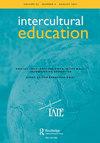Research Note: VIETNAMESE LEARNERS OF ENGLISH AND THEIR INTERCULTURAL SENSITIVITY?
IF 0.8
Q3 EDUCATION & EDUCATIONAL RESEARCH
引用次数: 1
Abstract
ABSTRACT This mixed-method study seeks to understand Vietnamese higher education students’ intercultural sensitivity (IS) to progress their development of intercultural communicative competence (ICC), as part of the efforts to enrich the literature on IS and ICC in the Vietnamese contexts of foreign language education. Firstly, attending to these target students’ English language learning, this study quantitatively suggested that they had weak-to-moderate levels of IS and initially proved that they were still able to interact interculturally in a relatively confident way. Moreover, based on the framework of Chen and Starosta, the quantitative and qualitative findings demonstrated that the IS levels seemed to vary among the target students, according to their demographic backgrounds (e.g. gender, academic major, language as a medium of instruction, locations of hometown, year of learning, and length of English language learning). Finally, implications are discussed at the end of this manuscript, involving much attention needed from a wide range of related stakeholders in order to necessarily establish critical steps for the facilitation of intercultural education in the Vietnamese context of higher education in general and language education in particular.研究报告:越南英语学习者及其跨文化敏感性?
摘要本混合方法研究旨在了解越南高等教育学生的跨文化敏感性(IS),以促进他们的跨文化交际能力(ICC)的发展,作为丰富越南外语教育背景下IS和ICC文献的一部分。首先,针对这些目标学生的英语学习,本研究从数量上表明他们的IS水平为弱至中等,并初步证明他们仍然能够以相对自信的方式进行跨文化互动。此外,基于Chen和Starosta的框架,定量和定性研究结果表明,目标学生的IS水平似乎因其人口统计学背景(如性别、专业、作为教学媒介的语言、家乡、学习年份和英语学习时间长短)而有所不同。最后,本文在结尾处讨论了影响,涉及广泛的相关利益相关者的大量关注,以便在越南高等教育特别是语言教育的背景下,必要地建立促进跨文化教育的关键步骤。
本文章由计算机程序翻译,如有差异,请以英文原文为准。
求助全文
约1分钟内获得全文
求助全文
来源期刊

Intercultural Education
EDUCATION & EDUCATIONAL RESEARCH-
CiteScore
2.30
自引率
8.30%
发文量
36
期刊介绍:
Intercultural Education is a global forum for the analysis of issues dealing with education in plural societies. It provides educational professionals with the knowledge and information that can assist them in contributing to the critical analysis and the implementation of intercultural education. Topics covered include: terminological issues, education and multicultural society today, intercultural communication, human rights and anti-racist education, pluralism and diversity in a democratic frame work, pluralism in post-communist and in post-colonial countries, migration and indigenous minority issues, refugee issues, language policy issues, curriculum and classroom organisation, and school development.
 求助内容:
求助内容: 应助结果提醒方式:
应助结果提醒方式:


